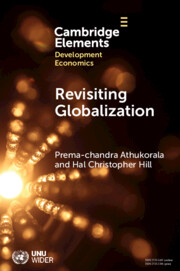Refine search
Actions for selected content:
3410549 results
Heidegger and Aristotle
- Coming soon
-
- Expected online publication date:
- April 2026
- Print publication:
- 30 April 2026
-
- Element
- Export citation

Boundaries of Belonging
- Sectarianism and Statecraft in the Early Modern Ottoman Empire
- Coming soon
-
- Expected online publication date:
- April 2026
- Print publication:
- 30 April 2026
-
- Book
- Export citation

Hematopathology and Coagulation
- Self Assessment and Board Review
- Coming soon
-
- Expected online publication date:
- April 2026
- Print publication:
- 30 April 2026
-
- Book
- Export citation

Fifty Years of International Environmental Law
- Developments since the 1972 Stockholm Conference
- Coming soon
-
- Expected online publication date:
- April 2026
- Print publication:
- 30 April 2026
-
- Book
- Export citation

Charting Transfiction
- Patterns, Open Questions, and Future Directions
- Coming soon
-
- Expected online publication date:
- April 2026
- Print publication:
- 31 March 2026
-
- Element
- Export citation

Interlanguage Grammars of Mandarin Chinese
- Coming soon
-
- Expected online publication date:
- April 2026
- Print publication:
- 31 March 2026
-
- Book
- Export citation

Ancient Fantasies and Modern Power
- Neo-Antique Architecture at American World's Fairs, 1893–1915
- Coming soon
-
- Expected online publication date:
- April 2026
- Print publication:
- 30 April 2026
-
- Book
- Export citation
Restoring Indigenous Place Names
- Making Anishinaabe Toponyms Visible Throughout the White Earth Ojibwe Reservation
- Coming soon
-
- Expected online publication date:
- April 2026
- Print publication:
- 30 April 2026
-
- Element
- Export citation
The Political Thought of Nineteenth-Century Spanish America
- Coming soon
-
- Expected online publication date:
- April 2026
- Print publication:
- 30 April 2026
-
- Book
- Export citation

The Cambridge Handbook for the Anthropology of Race and Ethnicity
- Coming soon
-
- Expected online publication date:
- April 2026
- Print publication:
- 31 May 2026
-
- Book
- Export citation

The Astronomy of Hipparchus
- An Annotated Translation of and Introduction to the Commentary on the Phenomena of Aratus and Eudoxus
- Coming soon
-
- Expected online publication date:
- April 2026
- Print publication:
- 30 April 2026
-
- Book
- Export citation

Nordic Capitalism
- Lessons for Realizing Sustainable Capitalism
- Coming soon
-
- Expected online publication date:
- April 2026
- Print publication:
- 30 April 2026
-
- Book
- Export citation

Revisiting Globalization
- Southeast Asia in the Global Factory
- Coming soon
-
- Expected online publication date:
- April 2026
- Print publication:
- 30 April 2026
-
- Element
- Export citation

The Modernist Wish
- A History of Europe, 1914-1939
- Coming soon
-
- Expected online publication date:
- April 2026
- Print publication:
- 30 April 2026
-
- Book
- Export citation

Tipping Out of Trouble
- How Societies Transformed and How We Can Do So Again
- Coming soon
-
- Expected online publication date:
- April 2026
- Print publication:
- 02 April 2026
-
- Book
- Export citation
Sex, Gender Identity and the Law
- Coming soon
-
- Expected online publication date:
- April 2026
- Print publication:
- 30 April 2026
-
- Book
- Export citation

Reading Linear B
- Coming soon
-
- Expected online publication date:
- April 2026
- Print publication:
- 30 April 2026
-
- Textbook
- Export citation
Design Your Future
- The Innovative Career and Transition Guide
- Coming soon
-
- Expected online publication date:
- April 2026
- Print publication:
- 30 April 2026
-
- Book
- Export citation

An Introduction to Chinese Linguistics
- Coming soon
-
- Expected online publication date:
- April 2026
- Print publication:
- 31 March 2026
-
- Textbook
- Export citation
Interpreting Sellars
- Critical Essays
- Coming soon
-
- Expected online publication date:
- April 2026
- Print publication:
- 30 April 2026
-
- Book
- Export citation
